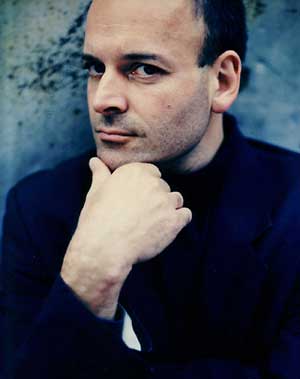Lortie program offers a pianist’s illuminating afternoon at the opera

The French-Canadian pianist Louis Lortie treated the Symphony Center audience to an unusual and rewarding recital Sunday afternoon with a program of transcriptions from Wagner and Mozart operas by Liszt, Hugo Wolf, Josef Rubinstein, and himself.
It takes a virtuoso pianist and a sophisticated musician to pull this off as convincingly as Lortie did. These are works that draw from the deep but relatively obscure nineteenth-century tradition of arranging for the piano—with varying degrees of creative and re-creative freedom—excerpts from beloved contemporary operas.
Utilitarian efforts to fix on a piano score the complexities of Wagner’s music dramas and increase their circulation among a broader audience also present issues of technique, improvisation, interpretation, and “translation.” In Lortie’s hands, all resonated as well today as they likely did with previous masters in the latter part of the nineteenth century.
As Liszt famously did in his day, Lortie inserted himself fully into the tradition of composer/performer and offered his own transcription of the Prelude to Tristan und Isolde, which he combined seamlessly with Liszt’s Liebestod transcription as one unified openingwork.
Both in these works and in Hugo Wolf’s arrangement of the Magic Fire music from Die Walküre, Lortie masterfully teased out the thick Wagnerian chromaticism and ever-spinning melodies. The pianist put his sure, dazzling technique—including the expert use of the pedals and rubato—at the service of an almost meditative approach and a rich range of sonorities going from resonant fortissimos to a diaphanous pianissimo.
Liszt’s Reminiscences of Don Juan and his transcription of the Tannhäuser Overture moved closer to the realm of virtuosic variations on one or more themes. These were the most expansive and elaborate pieces on the program, combining strands of rhapsodic quasi-improvisation with extreme technical difficulty. Still, filtered through the lens of Lortie’s sensitive musicianship, they transcended their own showy features and became the objects of a spellbinding aural and intellectual experience.
In the second half of the program we heard the arrangement of the Siegfried Idyll by pianist Josef Rubinstein, a devoted Wagner follower. This more restrained piece reflects well the origins of the work as a chamber music offering to Cosima on her birthday in 1870.
For his encore, Lortie chose another of Liszt’s Wagnerian transcriptions, the quietly beautiful recitative and aria “O du mein holder Abendstern” from Tannhäuser. Kudos to Lortie for putting together a fascinating program that was both a homage to Wagner at the start of his bicentenary, and a recognition of the role of Liszt and other contemporary pianist-arrangers both historically and—at least potentially—in today’s concert halls.
Marta Tonegutti has written about music for the Chicago Sun-Times and L’opera. She is currently acquisitions editor for musicology and managing editor of the complete works of Giuseppe Verdi at the University of Chicago Press.
Posted in Uncategorized


Posted Jan 22, 2013 at 2:40 pm by doug macdonald
An excellent review. I was thrilled with Lortie’s
Prelude/Liebestod combination tho I have heard this music many times. I doubt if any other pianist of today could have pulled off this program so brilliantly.